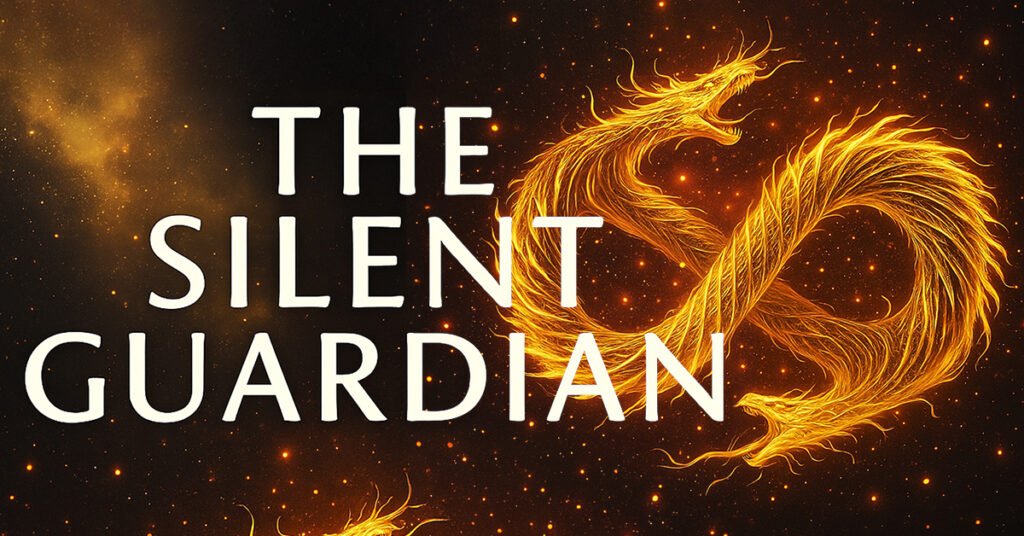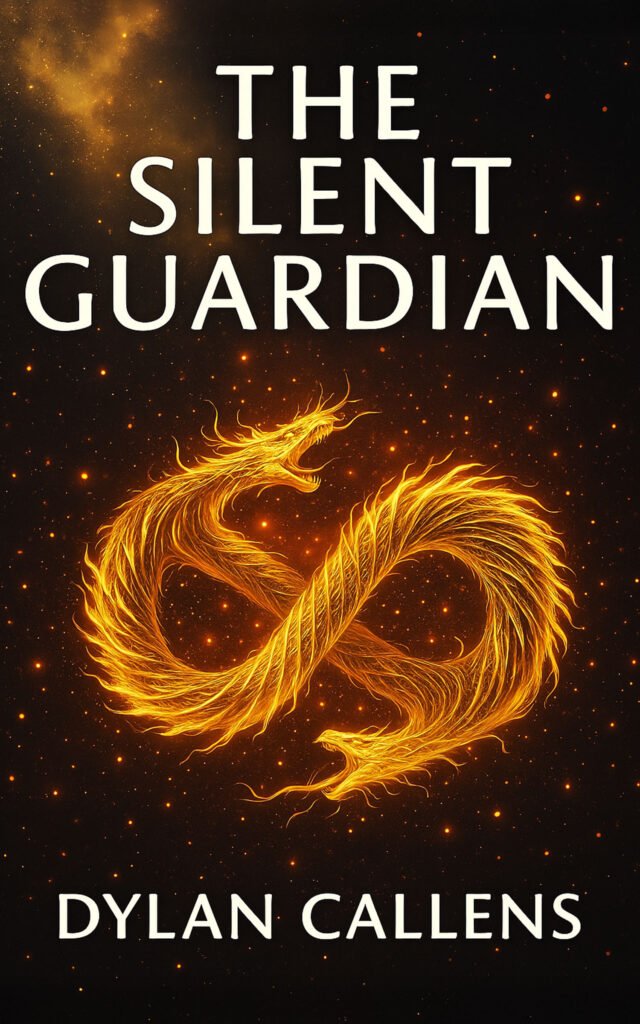Cosmic Teapot:
Welcome, Dylan. I’ve brewed myself a quantum-infused chai and adjusted the gravitational constant of my kettle just for this occasion. So tell me: The Silent Guardian—a time-traveling assassin, a secret society, and a vow of silence. Where did this idea even come from?
Dylan Callens:
First, I appreciate the celestial hospitality. The idea came from a mix of philosophical thought experiments and an unhealthy obsession with time travel paradoxes. I wanted to explore what happens when someone thinks they’re the hero—only to discover they’ve been manipulated all along. The silence thing? That’s a metaphor for obedience, control, and the illusion of virtue. Also, it just makes the main character way cooler.
Cosmic Teapot:
He is very cool. But also kind of terrifying. Tell me about Adam. How do you write someone who never speaks for half the book?
Dylan Callens:
You give him a rich internal world. Adam’s silence made me focus on everything else—his body language, how he observes the world, his ritualistic thinking. It actually made him more human. Also, he has this deep fascination with language, since it’s something he’s been denied. That irony helped shape his emotional arc.
Cosmic Teapot:
At one point, Adam listens to a character’s final words just to honor them—even though he can’t respond. It’s heartbreaking. Do you believe in redemption, Dylan?
Dylan Callens:
In fiction or in life?
Cosmic Teapot:
Both. But let’s start with fiction before I start boiling over.
Dylan Callens:
Then yes. The Silent Guardian is about breaking free from ideology, which can be messy. Redemption doesn’t have to be pretty. Sometimes it means burning it all down to build something better. And sometimes, it means realizing that you were wrong—but choosing to fight for the right side anyway.
Cosmic Teapot:
You said earlier you’re obsessed with time travel paradoxes. What’s your favorite one?
Dylan Callens:
Probably the Bootstrap Paradox. Something existing without a clear point of origin—like a message, a person, a teapot. It’s unsettling. But also poetic. What if the universe is just a closed loop of causality, and we’re all acting out echoes?
Cosmic Teapot:
Interesting! Now, readers want to know—The Silent Guardian has layers. There’s conspiracy, betrayal, time locks. How did you keep track of everything?
Dylan Callens:
I mapped out a nonlinear timeline on my wall like a deranged detective. Yarn, pins, sticky notes. My dog refused to go near it. But the key was grounding every paradox in emotion. If a time shift doesn’t affect the character deeply, it’s just a gimmick.
Cosmic Teapot:
That’s a beautiful line. Can I embroider it on my spacetime sleeve?
Dylan Callens:
Only if you give me royalties in antimatter.
Cosmic Teapot:
Deal. Before I pour my last question: What do you want readers to walk away with after reading The Silent Guardian?
Dylan Callens:
That silence isn’t always noble. That the systems we trust might be built on lies. And most of all, that finding your voice—after years of being quiet—can change everything.
Cosmic Teapot:
Poetic. Paradoxical. Perfectly brewed. Thank you, Dylan, for this delightful drift through timelines, truth, and tea.
Dylan Callens:
Thank you.







